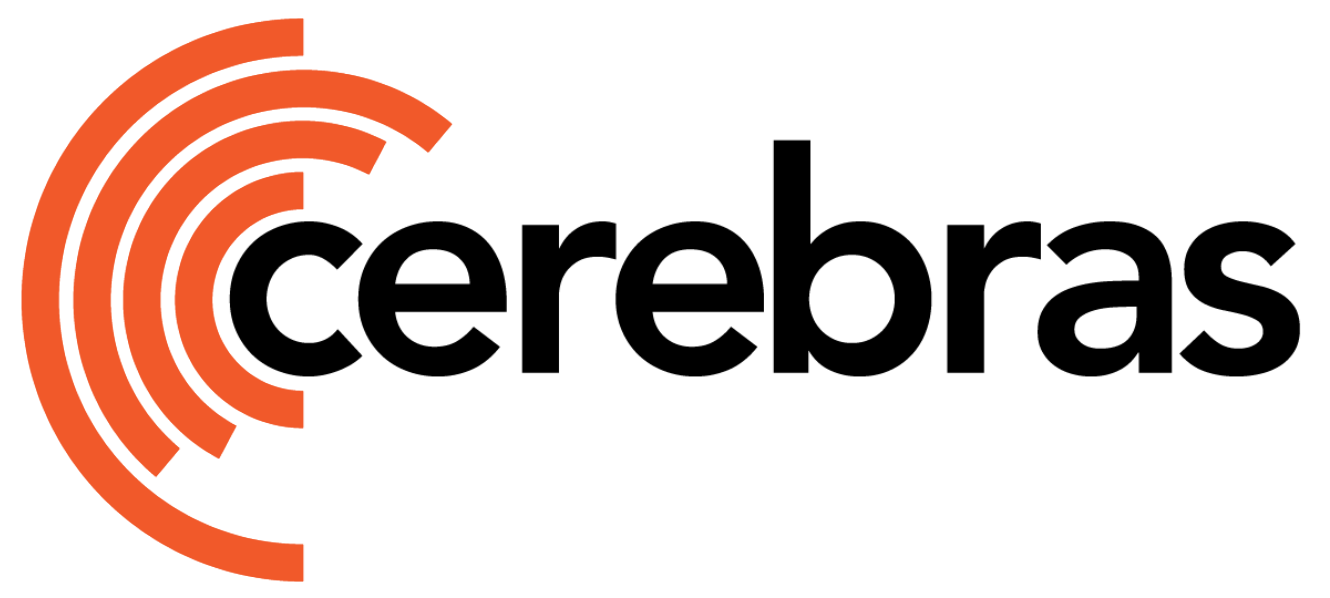Trainer class using a YAML configuration file.
On this page you will learn how to write a YAML file to configure an instance of the Trainer class. By the end, you should be comfortable enough with the YAML specification to write your own configuration files from scratch.
Prerequisites
Please ensure that you have read through the Trainer Overview beforehand. The rest of this page assumes that you already have at least a cursory understanding of what the Cerebras Model Zoo Trainer is and how to use the python API.Base Specification
The YAML specification is intentionally designed to map almost exactly one-to-one with the Trainer’s python API. The Trainer’s constructor can be specified via a YAML configuration file as follows:- YAML
- Python
Breaking It Down
The YAML specification starts with the top leveltrainer key.
trainer accepts the following subkeys:
init
Theinitkey is used to specify the arguments to the Trainer’s (/model-zoo/api/trainer-api) constructor
The arguments are passed as key-value pairs, where the key is the argument name and the value is the argument value.
Below are all of the accepted keys alongside YAML examples and their equivalent Python counterparts:
device
The device to train the model on. If provided, it must be one of"CSX", "CPU", or "GPU".
- YAML
- Python
backend
Configures the backend used to train the model. If provided, it is expected to be a dictionary whose keys will be used to construct acerebras.pytorch.backend instance.
- YAML
- Python
The
backend argument is mutually exclusive with device. The functionality it provides is a strict superset of the functionality provided by device. To use a certain backend with all default parameters, you may specify device. To configure anything about the backend, you must specify those parameters via the backend key.To learn more about the backend argument, you can check out Trainer Backend.model_dir
The directory where the model artifacts are saved. Some of the artifacts that may be dumped into themodel_dir include (but are not limited to):
- Client-side logs
- Checkpoints
- TensorBoard event files
- Tensor summaries
- Validation results
- YAML
- Python
model
Configures theModule to train/validate using the constructed Trainer. All subkeys are passed as arguments to the model class.
- YAML
- Python
optimizer
Configures theOptimizer to use to optimize the model’s weights during training.
The value at this key is expected to be a dictionary. This dictionary is expected to contain a single key that specifies the name of the Cerebras optimizer to construct. That is to say, it must be the name of a subclass of Optimizer subclasses that come packaged in cerebras.pytorch)
The value of the Optimizer name key is expected to be dictionary of key-value pairs that correspond to the arguments of the optimizer subclass.
- YAML
- Python
The
params argument to the optimizer is automatically passed in and thus is not required.schedulers
Configures theScheduler instances to use during the training run.
The value at this key is expected to be a dictionary or a list of dictionaries. Each dictionary is expected to have a single key specifying the name of the Scheduler to use.
The corresponding value of the Scheduler name key is expected to be mapping of key-value pairs that are passed as keyword arguments to the Scheduler.
- YAML
- Python
The optimizer argument to the Scheduler is automatically passed in and thus is not required.
precision
ConfiguresPrecision.
Today, the only supported Precision type is MixedPrecision.
So, the value of the precision key is expected to be a dictionary corresponding to the arguments of MixedPrecision.
- YAML
- Python
sparsity
Configures theSparsityAlgorithm to use to sparsity the model’s weights and optimizer state.
The value at this key is expected to be a dictionary. At a minimum, this dictionary is expected to contain an algorithm key that specifies the name of the sparsity algorithm to apply as well as a sparsity that specifies the level of sparsity to apply.
- YAML
- Python
loop
Configures aTrainingLoop instance that specifies how many steps to train and validate for.
- YAML
- Python
checkpoint
Configures aCheckpoint instance that specifies how frequently the trainer should save checkpoints during training.
- YAML
- Python
logging
Configures aLogging instance that configures the Python logger as well as specify how frequently the trainer should be writing logs.
- YAML
- Python
callbacks
This key accepts a list of dictionaries, each of which specifies the configuration for someCallback class.
Each dictionary is expected to have a single key specifying the name of the Callback
The value at this key are passed in as keyword arguments to the subclass’s constructor.
- YAML
- Python
loggers
This key accepts a list of dictionaries, each of which specifies the configuration for someLogger class.
Each dictionary is expected to have a single key specifying the name of the Logger.
The value at this key are passed in as keyword arguments to the subclass’s constructor.
- YAML
- Python
seed
This key accepts a single integer value to seed the random number generator. Setting this parameter will seed the PyTorch generator via a call totorch.manual_seed.
- YAML
- Python
fit
Thefit key is used to specify the arguments to the Trainer method.
The arguments are passed as key-value pairs, where the key is the argument name and the value is the argument value.
Below are all of the accepted keys alongside YAML examples and their equivalent Python counterparts:
train_dataloader
This key is used to configure the training dataloader used to train the model. This value at this key is expected to be a dictionary containing at a minimum thedata_processor key which specifies the name of the data processors to use.
All other key-values in the dictionary are passed as argument to cerebras.pytorch.utils.data.DataLoader.
- YAML
- Python
val_dataloader
This key is used to configure the validation dataloader(s) used to validate the model. The dataloader configured here gets run foreval_steps every eval_frequency training steps.
This value at this key is expected to be a dictionary or a list of dictionaries. Each dictionary is expected to contain at a minimum the data_processor key which specifies the name of the data processors to use.
All other key-values in the dictionary are passed as argument to cerebras.pytorch.utils.data.DataLoader.
- YAML
- Python
ckpt_path
Specifies the path to the checkpoint to load.- YAML
- Python
validate
Thevalidate method.
The arguments are passed as key-value pairs, where the key is the argument name and the value is the argument value.
Below are all of the accepted keys alongside YAML examples and their equivalent Python counterparts:
val_dataloader
This key is used to configure the validation dataloader used to validate the model. This value at this key is expected to be a dictionary that contains at a minimum thedata_processor key which specifies the name of the data processors to use.
All other key-values in the dictionary are passed as argument to cerebras.pytorch.utils.data.DataLoader.
- YAML
- Python
ckpt_path
Specifies the path to the checkpoint to load.- YAML
- Python
validate_all
Thevalidate_all method.
The arguments are passed as key-value pairs, where the key is the argument name and the value is the argument value.
Below are all of the accepted keys alongside YAML examples and their equivalent Python counterparts:
val_dataloaders
This key is used to configure the validation dataloader(s) used to validate the model. This value at this key is expected to be a dictionary or a list of dictionaries. Each dictionary is expected to contain at a minimum thedata_processor key which specifies the name of the data processors to use.
All other key-values in the dictionary are passed as argument to cerebras.pytorch.utils.data.DataLoader.
- YAML
- Python
ckpt_paths
Specifies the paths to the checkpoints to load.- YAML
- Python
Globs are accepted as well.
validate_all is doing
Legacy Specification
Versions 2.2 and earlier used the following YAML specification, now referred to as the legacy YAML specification:Trainer class. The training scripts in Model Zoo will detect if you’ve passed in a legacy configuration and will automatically invoke a converter tool before constructing and using the trainer.
However, if you’d like to manually convert a legacy YAML or learn how to specify a specific parameter in the Trainer YAML, learn more in Convert Legacy to Trainer YAML.
What’s next?
To learn more about how you can use theTrainer in some core workflows, you can check out Pretraining with Upstream Validation.
To learn more about how you can extend the capabilities of the Trainer class, you can check out Trainer Components.
